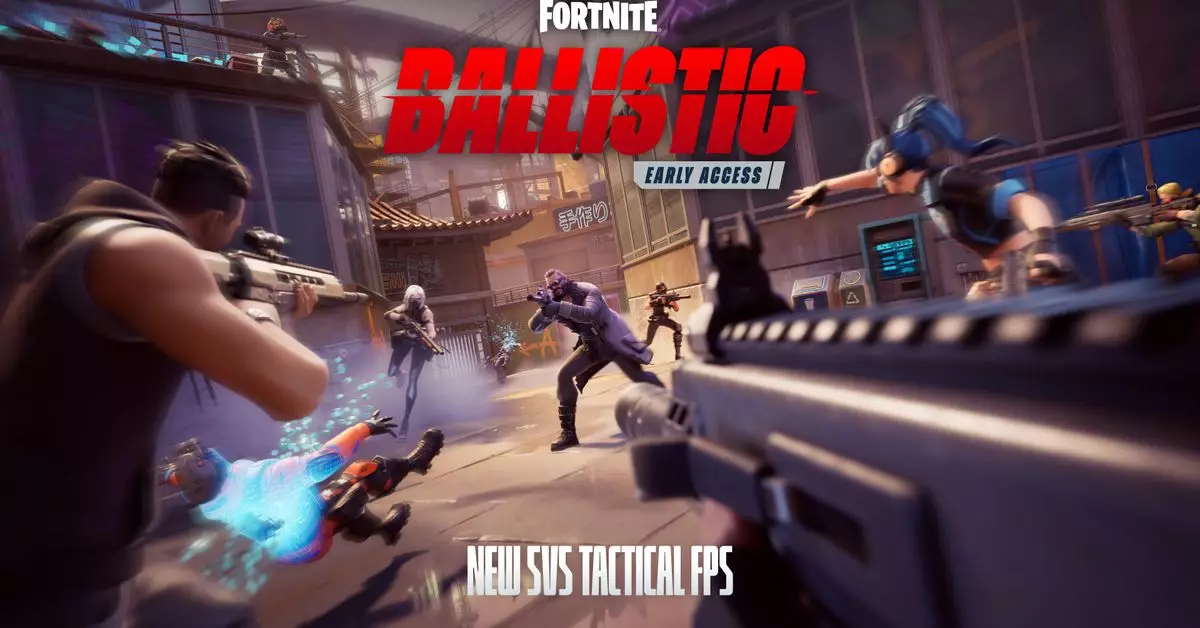Epic Games has long embraced evolution in its flagship title, Fortnite. Initially known for its battle royale gameplay, Fortnite has continually broadened its scope to incorporate various modes and mechanics drawn from popular genres. The upcoming introduction of the “Ballistic” mode marks a significant leap into the tactical first-person shooter realm. By allowing creators to publish first-person experiences, Epic is not just updating Fortnite’s gameplay but reshaping its entire identity.
The “Ballistic” game mode promises intensive 5v5 combat steeped in strategy and teamwork. Teams will alternate between assaulting and defending roles in a match designed to elevate competitive play. Players will engage in tasks akin to planting a bomb—now renamed the “Rift Point Device”—which reflects a clear homage to established FPS mechanics seen in games like Counter-Strike and Valorant. The structure—players buying gear between rounds and competing to win best-of-seven matches—creates a familiar yet fresh competitive framework, appealing to veteran players while drawing in new participants.
While the addition of Ballistic reflects Epic’s intent to diversify Fortnite’s gameplay, it raises an important question: Is this change in direction leading to an identity crisis? With modes inspired by several popular games, including Rocket League and Among Us, Fortnite risks diluting its essence as a battle royale game. This diversification may alienate loyal players who appreciate the core elements that initially hooked them. However, the potential to innovate and include new playstyles positions Fortnite as a flexible platform rather than a static game.
From a business standpoint, Fortnite’s expansion into various game types is rooted in financial incentive. By allowing players to use their purchased cosmetics and gear across different modes, Epic not only fosters player retention but ensures a steady revenue flow. The forthcoming launch of Ballistic coincides with ongoing promotions and seasonal changes within the game, thus capitalizing on renewed player interest. This interconnected gameplay ecosystem grants Epic a strategic advantage; players drawn to one mode may explore others, increasing overall engagement.
As Ballistic prepares to launch in early access on December 11th, Epic Games is clearly positioning Fortnite not just as a game but as a creative platform. Offering creators the chance to publish their own first-person experiences demonstrates an understanding of modern gaming’s collaborative spirit. While there are risks associated with expanding beyond core gameplay, Epic’s commitment to innovation could ensure Fortnite remains relevant in an ever-evolving gaming landscape. Balancing nostalgia with novelty, Epic continues to navigate the challenging waters of player expectations with aplomb, setting the stage for what could be a dynamic new chapter in Fortnite’s story.


Leave a Reply